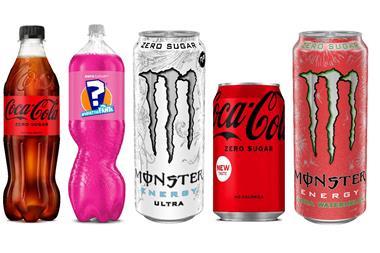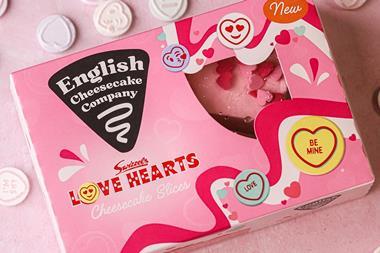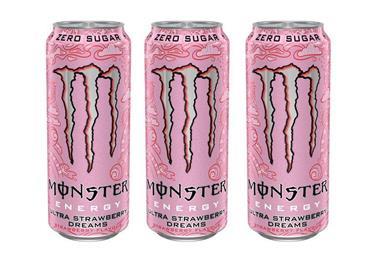Coca-Cola Enterprises is upbeat about the future of its male-oriented Zero drink in the UK, says Stefan Chomka
If there are any doubts about the success of Coca-Cola Enterprises& ' male-oriented drink Coca-Cola Zero, which was officially launched in the UK with great fanfare last week, you won't find them being voiced by anyone at the company.
'Supremely confident' is how you might describe the mood at CCE, which proudly claims that Zero is its biggest launch since Diet Coke 22 years ago. It is putting its money where its mouth is as well, with the most intensive brand campaign in the company's history. In its first week the campaign will be seen by 75% of the UK population, it says.
"Our aspirations for Zero are very substantial and they are commensurate with the support programme we are putting behind it," says Ian Deste, vice president of sales and marketing at CCE. "It is an unprecedented level of support in terms of advertising and sampling."
Deste is canny enough not to speculate on how big Zero may become, but CCE isn't exactly playing down its expectations either. It points to the drink's launch in Australia in January, where it broke all records of household penetration after just eight weeks, grew sales of cola by 19% year-on-year and reversed the decline in the entire carbonated soft drinks sector after six weeks.
If a similar situation were to occur here - and the company clearly thinks it will - this would add about £150m to the UK carbonated soft drinks market.
So why is the company so confident of Zero's success, considering it's launching into a category suffering an image crisis at the hands of the media and from the child obesity debate?
Deste says the drink is a perfect fit as it appeals to 20 to 29-year-old males that left the cola category after their teens. "People's palates and tastes change," he says. "As they get older they drink fewer soft drinks, so that's an opportunity for us. When we started to analyse people's consumption rates of soft drinks, we found we were not picking up all of those consumers with Diet Coke - it has a unique taste that doesn't appeal to everybody."
He is also quick to dismiss claims from certain parts of the industry that the company's extensions are confusing consumers and devaluing the Coca-Cola brand. "Since we launched Diet Coke with lemon in 2002 we've added £300m of incremental sales to the cola segment. Most buyers in the industry worth their salt recognise that. The flavour extensive programme has brought new consumers into the segment. Just look at the support to see how the trade feels about this."
Charlotte Morey, category manager for impulse at Musgrave Budgens Londis, believes adding Zero to the range won't cause confusion and that consumers will understand the difference between the three colas. She, like Deste, is also confident about Zero. "Theoretically it should reverse the trend of falling sales in carbonated soft drinks, especially if it performs as it has in Australia. It may well cause some cannibalisation of both standard and diet, but it should bring in new consumers."
Deste is also not concerned about the negative image the press has painted of the category. Instead, he regards it as an opportunity for the company to show off its strengths. He shrugs off any notion that the category is in crisis.
"What's it like to be operating in one of the biggest, most dynamic, high-growth categories in fmcg? Frankly, it's a pretty brilliant place to be," he says. "Consumers are looking for more choice - and the successful manufacturers will be the ones that service that choice most effectively."
If there are any doubts about the success of Coca-Cola Enterprises& ' male-oriented drink Coca-Cola Zero, which was officially launched in the UK with great fanfare last week, you won't find them being voiced by anyone at the company.
'Supremely confident' is how you might describe the mood at CCE, which proudly claims that Zero is its biggest launch since Diet Coke 22 years ago. It is putting its money where its mouth is as well, with the most intensive brand campaign in the company's history. In its first week the campaign will be seen by 75% of the UK population, it says.
"Our aspirations for Zero are very substantial and they are commensurate with the support programme we are putting behind it," says Ian Deste, vice president of sales and marketing at CCE. "It is an unprecedented level of support in terms of advertising and sampling."
Deste is canny enough not to speculate on how big Zero may become, but CCE isn't exactly playing down its expectations either. It points to the drink's launch in Australia in January, where it broke all records of household penetration after just eight weeks, grew sales of cola by 19% year-on-year and reversed the decline in the entire carbonated soft drinks sector after six weeks.
If a similar situation were to occur here - and the company clearly thinks it will - this would add about £150m to the UK carbonated soft drinks market.
So why is the company so confident of Zero's success, considering it's launching into a category suffering an image crisis at the hands of the media and from the child obesity debate?
Deste says the drink is a perfect fit as it appeals to 20 to 29-year-old males that left the cola category after their teens. "People's palates and tastes change," he says. "As they get older they drink fewer soft drinks, so that's an opportunity for us. When we started to analyse people's consumption rates of soft drinks, we found we were not picking up all of those consumers with Diet Coke - it has a unique taste that doesn't appeal to everybody."
He is also quick to dismiss claims from certain parts of the industry that the company's extensions are confusing consumers and devaluing the Coca-Cola brand. "Since we launched Diet Coke with lemon in 2002 we've added £300m of incremental sales to the cola segment. Most buyers in the industry worth their salt recognise that. The flavour extensive programme has brought new consumers into the segment. Just look at the support to see how the trade feels about this."
Charlotte Morey, category manager for impulse at Musgrave Budgens Londis, believes adding Zero to the range won't cause confusion and that consumers will understand the difference between the three colas. She, like Deste, is also confident about Zero. "Theoretically it should reverse the trend of falling sales in carbonated soft drinks, especially if it performs as it has in Australia. It may well cause some cannibalisation of both standard and diet, but it should bring in new consumers."
Deste is also not concerned about the negative image the press has painted of the category. Instead, he regards it as an opportunity for the company to show off its strengths. He shrugs off any notion that the category is in crisis.
"What's it like to be operating in one of the biggest, most dynamic, high-growth categories in fmcg? Frankly, it's a pretty brilliant place to be," he says. "Consumers are looking for more choice - and the successful manufacturers will be the ones that service that choice most effectively."


















No comments yet